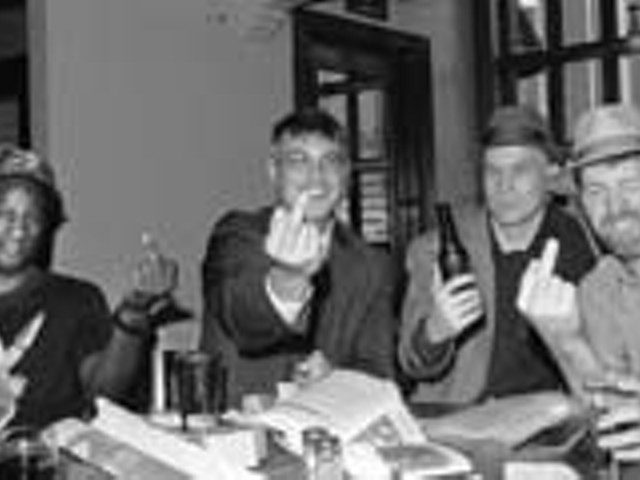As subcultures go, that of the bike messenger seems to be one with an uncommonly close-up view of the gears that turn inside the corporate world. In his imaginative memoir of the early 1990s, The Immortal Class: Bike Messengers and the Cult of Human Power, young writer Travis Hugh Culley is paying attention and taking notes.
Even in the motion-blurred realities of rolling endlessly between towering Chicago office buildings, the author squints hard to make impassioned observations about that world of glass giants, flustered receptionists, parking garages and traffic jams. He’s not just scanning the cityscape for the travesties of the corporate world and the cultural and environmental toxicity of “car culture.” Culley’s also looking for “instances of incredible beauty, stories of human struggle, great ideas and religious highs.”
That may be a tall order for someone who delivers parcels for a living. But Culley has higher aspirations, as (he observes) most bike messengers do. He comes to the Windy City broke and bikeless, hoping to put his bachelor’s in fine arts from a Miami college to good use by starting a theater company. No such luck. He works at a few art galleries, but finds that he can’t support himself on the short hours and meager wages.
Falling somewhere between selling out and dropping out, he reluctantly joins the ranks the “working man,” signing with a company as a bike messenger. At least he’s free by the motion, diversity and flexibility in his work, while the real corporate folks are busy “making utopian visions out of silly products like Drano and Tic Tacs.”
The only drawback with the new gig is that the messengers are called by numbers and hooked into a dispatch, much like cab drivers. But, of course, without cars — only twin-wheeled, agile metal frames that merge with the rider to make a hybrid machine.
Psychologically and physically, Culley has a great sense of this union and his place in the world when he’s riding. It shines in some of the most interesting and poetic passages in the book:
“Riding on streets I hadn’t used, finding buildings I’d never seen, I felt like I was walking a tightrope. Trillions of tiny movements accompanied every pickup and every delivery. I felt lost trying to decipher a radio lingo I had never heard, following directions that would send me to mailrooms I’d never needed.”
In both Chicago and New York, Culley’s mix of bewilderment, enchantment and cynicism doesn’t prevent him from falling in love with public space. While some of the details of his romance with the city are moving, some of the political insights alongside seem a bit wobbly and stretched. Citing an early 20th century legal case in which a cyclist fell into a pothole, Culley calls for “a pre-Fordist age in the American city when the street reflected the principles of its constitution.”
Interesting, but his thesis about the reflective nature of the city is much more convincing: “The city’s law of reflectivity will bring a messenger into close contact with whatever nightmare or whatever bliss he comes to the job with.”
Full of arresting insights, youthful radicalism, worker poetry and dreamy Peter Pan heroism, The Immortal Class is a paradoxical but worthwhile and entertaining ride. It might not know where it’s going, but it sure does come from the right place.
E-mail Norene Cashen at [email protected].





